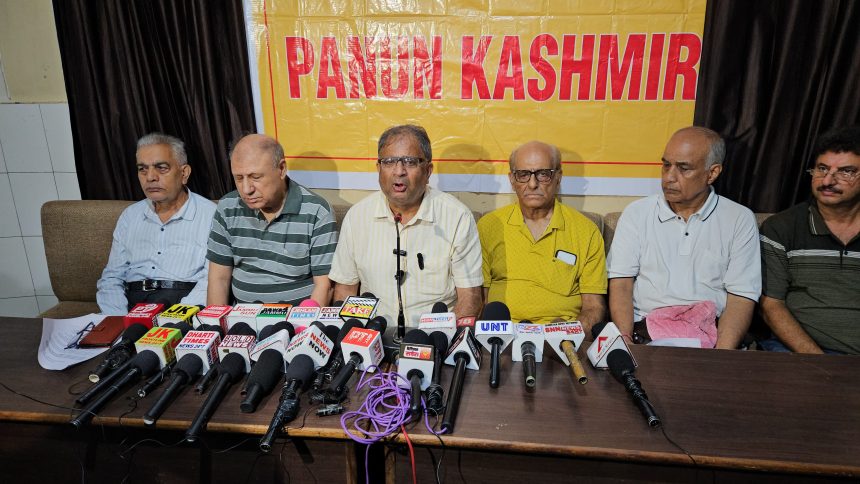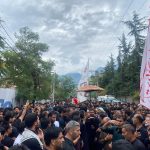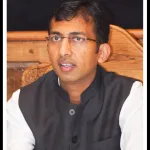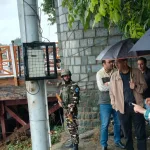Jammu, Aug 01: Panun Kashmir has called on the Government of India (GoI) to critically reassess its political and strategic perspectives regarding the ongoing separatist and terrorist conflict in Jammu & Kashmir.
The organisation in a statement issued here said that certain policies and attitudes of the GoI have “inadvertently” fostered an environment that supports terrorism and separatism in the region.
Panun Kashmir said that while Pakistan’s involvement in subversion is well-documented, the GoI’s own approaches have created a conducive space for this subversion to thrive.
The group has criticised the Government of India on several key issues. It accused the GoI of denying the genocide of Hindus in Kashmir, labelling the forced exodus of Hindus as mere “migration” rather than recognising it as a grave crime against humanity. This denial, they argue, sends a troubling message to terrorist groups.
The organisation in the statement criticised the GoI’s employment policy for displaced Hindus from Kashmir, describing it as a tool for maintaining a “cosmetic secular texture” rather than providing genuine support.
Panun Kashmir said that no Bharatiya Janata Party (BJP) leader has visited Hindu victims of terrorism. “Such neglect undermines the political establishment’s credibility and helps perpetuate the terrorism ecosystem,” it said.
The organisation criticised the BJP government for “failing” to address the Muslim demographic changes in Jammu. It accused the party of rewarding leaders who facilitated this demographic shift and legalising land grabs.
Panun Kashmir said the GoI has ignored the growing threat of terrorism while using statistical data to falsely claim improvements. It criticised the continued promotion of tourism despite recent attacks on pilgrims. “The GoI’s policies have not adapted to the evolving security situation,” it said.
The group accused the BJP government of focusing on tourism rather than taking decisive action to protect Hindu communities.
Panun Kashmir urged the GoI to scrutinise its own policies and recent manoeuvres, including attempts to engage with groups like Jamaat-e-Islami, which they view as counterproductive.








